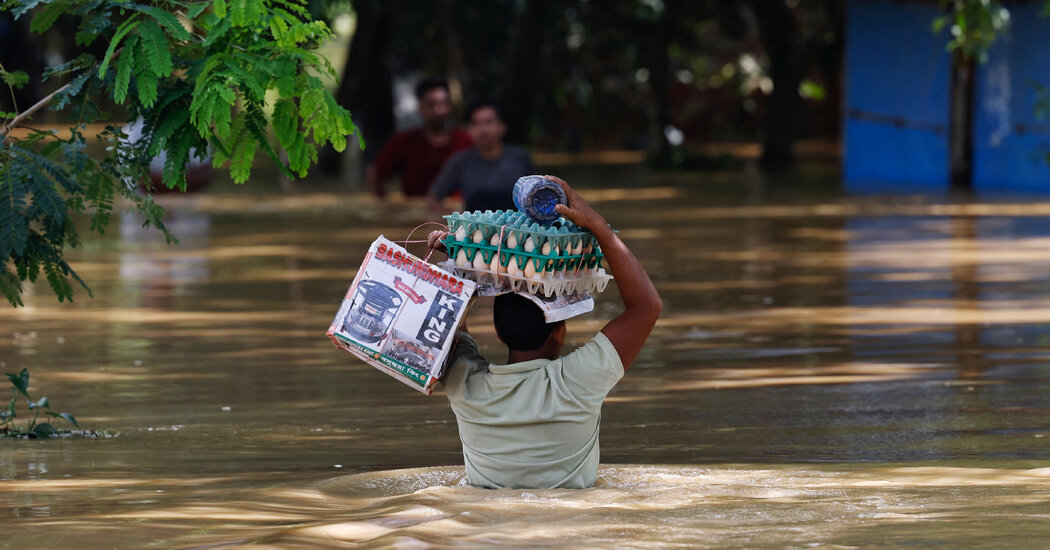A new report, urging rich nations to give more climate aid to poorer ones, comes as Donald Trump’s election throws global climate talks into disarray.
After Donald J. Trump’s election threatened to upend global efforts to fight climate change, a United Nations group on Thursday warned in a new report that developing nations need hundreds of billions of dollars per year in aid to adapt to a warming planet.
With temperatures on the rise, many more countries are trying to protect themselves from heat waves, floods and other climate shocks, according to the report, from the U.N. Environment Program. At least 171 countries now have at least one national climate adaptation plan in place.
But those efforts remain badly underfunded, particularly in poor countries. While wealthy nations provided $28 billion in aid for climate adaptation in 2022, the report estimates that developing nations need between $187 billion and $359 billion annually in additional funding to cope with climate change disasters.
World leaders were set to meet next week in Azerbaijan at the U.N. climate summit, called COP29, to discuss how to increase financial assistance to developing nations. Reaching an agreement could be more difficult now that Mr. Trump, who has dismissed climate change as a hoax, is the United States’ president-elect.
“Trump’s victory is a profound blow to global climate justice,” said Harjeet Singh, global engagement director at an activist group called the Fossil Fuel Non-Proliferation Treaty Initiative. His “refusal to provide climate finance will deepen the crisis,” Mr. Singh added, “endangering lives and livelihoods — especially in regions least responsible for, yet most impacted by, climate change.”
The question of what rich countries owe to poor countries has been a sticking point in international climate talks for years. Wealthy areas like the United States and Europe have historically pumped more heat-trapping greenhouse gases into the air than others by burning coal, oil and gas, while poorer countries, such as those in Africa, are more vulnerable to climate disasters.
